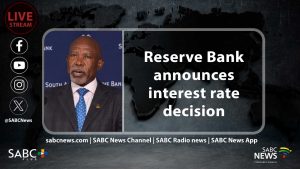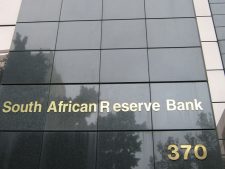The South African Reserve Bank (SARB) has identified cybercrime and emerging technologies as growing threats to South Africa’s banking sector.
In its report, the reserve bank says threats including internet and mobile banking platforms, may be exploited to facilitate money-laundering and fund terrorism.
Cybercrime has become a huge issue not only in South Africa but around the world. Phishing remains one of the most prevalent scam techniques.
Often, fraudsters send their targets emails that look like they come from the bank.
In recent months, 1 237 incidents of cybercrime and online fraud attempts were recorded, which relates to an average of 137 incidents per bank. South Africa has 34 licensed deposit-taking entities.
In other instances, fraudsters try to lure individuals into providing sensitive information like one-time passwords (OTPs) and online baking login passwords.
But banks often urge people not to share any sensitive information like bank card pin numbers and online banking passwords.
“Large banks are widely exposed to a high level of inherent ML/TF risk. This is as a result of their high numbers of clients, substantial exposure to foreign country risk, use of non-face-to-face delivery channels which increases anonymity, very high exposure to cash, and the propensity for the illicit flow of funds,” says the report.
The South African Banking Risk Information Centre (Sabric) estimates that SA businesses suffer a total of about R250 million in losses each year due to phishing attacks and internet fraud.
The report notes over 90% of the banking sector offer online banking services, and mobile application banking [the use of banking apps], with the exception of one mutual bank.
“Although online banking offers faster transactions and more convenient options for banking, these features are also attractive to criminals. Online features can hide the true identity of clients (which in-branch visits would have detected), and these features can also hide the true destination and beneficiaries of funds,” says the SARB report.
South Africa is ranked among the top ten countries in the world in terms of cybercrime.
The country is ranked seventh out of sixteen countries polled for the highest cost of a cyber breach.
Recently, a father and son duo were arrested in Durban, KwaZulu-Natal for operating a R99 debit order scam.
In another cybercrime case, a man and woman are accused of defrauding the KwaZulu-Natal Blind and Deaf Society for over R12 million over a six-year period.
Southern African Fraud Prevention Service (SAFPS) CEO, Manie van Schalkwyk says consumers must try by all means to make sure that their data is always secured.
“Consumers must take another step and add another level of protection [to their data] and make sure that your data is not abused. Also, we are moving into an era of biometrics … people need to embrace biometrics. We are moving into the world of artificial intelligence, which can work against us,” adds Van Schalkwyk.
The video below discusses cybercrime:






